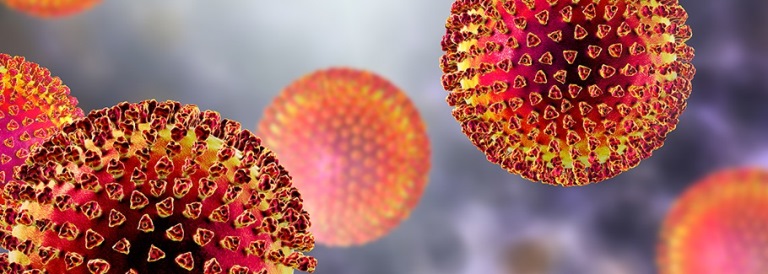Researchers at Cedars-Sinai Medical Center are planning a randomized, controlled trial to evaluate a form of allogeneic cell therapy for COVID-19, after four out of six patients critically ill with the disease recovered well enough following infusions of the cells to be discharged from the hospital. The remaining two patients who received the treatment are also alive, in the hospital.
The cell therapy, known as CAP-1002, comprises cardiosphere-derived cells (CDCs) from heart tissue, which are grown in the laboratory. Infusions of the cells were evaluated in the six patients under FDA compassionate use approval, at the Cedars-Sinai Medical Center. The case series, published in Basic Research in Cardiology, is believed to be the first peer-reviewed report on the use of a cell therapy in critically ill COVID-19 patients, suggested co-author Eduardo Marbán, MD, PhD, executive director of the Smidt Heart Institute at Cedars-Sinai. “Previous studies provided strong evidence that CDCs have intense benefits for the immune system and inflammation in a number of diseases,” Marbán explained. “They accomplish this by secreting exosomes—nanoscale vesicles with a variety of active contents that travel widely throughout the body.
The Cedars-Sinai researchers, together with colleagues at Capricor Therapeutics, which manufactured the CAP-1002 cells, reported their findings in a paper titled, “Allogeneic cardiosphere-derived cells (CAP-1002) in critically ill COVID-19 patients: compassionate-use case series.”
Although most cases of COVID-19 are mild to moderate in severity, about 15% develop severe pneumonia, and nearly 5% progress to acute respiratory distress syndrome (ARDS) and multiple organ failure, the investigators noted. “This worsening is predominantly driven by cytokine upregulation and an exaggerated yet maladaptive inflammatory response … In the sickest patients, a hyperimmune response characterized by cytokine storm leads to critical illness and end-organ dysfunction, with high mortality.” Increasing severity of illness is associated with increasing mortality rates, which have been reported as more than 50% in critically ill patients.
“‘Friendly fire’ is what’s killing many coronavirus patients,” said Marbán, a professor of cardiology. “The immune system unleashes a so-called cytokine storm into the blood-overwhelming the body with infection-fighting proteins that can trigger multiple-organ failure and death.”
A number of immunomodulatory therapies are under investigation for COVID-19, including corticosteroids, anti-cytokine therapies, convalescent plasma, intravenous immune globulin therapy, and inflammatory pathway inhibitors. All are awaiting validation in large-scale randomized trials, the authors noted. Various cell types have also been put forward as therapeutic candidates. CDCs have been tested in more than 200 patients in clinical trials for various heart conditions as well as Duchenne muscular dystrophy and pulmonary arterial hypertension, the team continued. These studies, along with more extensive preclinical evaluation, have demonstrated that CDCs display immunomodulatory and anti-inflammatory effects. Moreover, they wrote, “ … based on preclinical work, a majority of IV CDCs are retained in the lungs. Thus, there may be local benefits within the lung parenchyma, although this remains a conjecture.”
“Given the safety record of CDCs in humans, and the substantial body of evidence confirming relevant disease-modifying bioactivity, applicability to COVID-19 seemed compelling,” the team continued, “particularly in the hyperinflammatory stage of the illness.”
The Cedars-Sinai researchers evaluated the safety and impact of allogeneic CDCs, formulated for intravenous infusion, as CAP-1002, in six critically ill COVID-19 patients. Each case was approved by the CSMC Institutional Review Board, and each patient, or their legal representative, gave written informed consent. FDA approval for compassionate use of the CAP-1002 cell therapy was granted on a case-by-case basis under Emergency Use protocols.
All six patients in the case series suffered from respiratory failure and required supplemental oxygen prior to receiving the cell therapy; five were on ventilators. Within four days after infusion with CAP-1002, four patients were able to breathe without respiratory support, and within less than three weeks, the four were well enough to be discharged from the hospital. As of April 28, 2020, the two other patients remained hospitalized in intensive care. None of the treated patients showed adverse effects from the infusions. By comparison, the researchers noted, six patients died among a group of 34 comparable COVID-19 patients who were treated in Cedars-Sinai’s intensive care unit around the same time, but who did not receive the cell therapy.

The investigators emphasized that the patient outcomes, while encouraging, don’t prove that CAP-1002 is safe and effective for treating COVID-19, as the study wasn’t a clinical trial with a control group. A large-scale study is now in late-stage planning. “The only way to establish the efficacy of our therapy is with a randomized clinical trial,” said principal author Raj Makkar, MD, associate director, interventional technologies, Heart Institue, Cedars-Sinai. “That is because some coronavirus patients get better on their own with standard treatments.” As an immediate successor to the compassionate use study, an expanded access protocol, Cytokine Storm in Covid Syndrome Trial (CS3), is continuing to evaluate the clinical and biochemical effects of CAP-1002 administration in patients with severe COVID-19 infection, under an IND application awarded on April 22, 2020.
Makkar added that if the CDCs counteract immune overreaction in coronavirus patients, the cells potentially could help prevent or treat acute respiratory distress and myocarditis—inflammation of the heart muscle—which are two other life-threatening conditions that often develop during the course of the disease.



